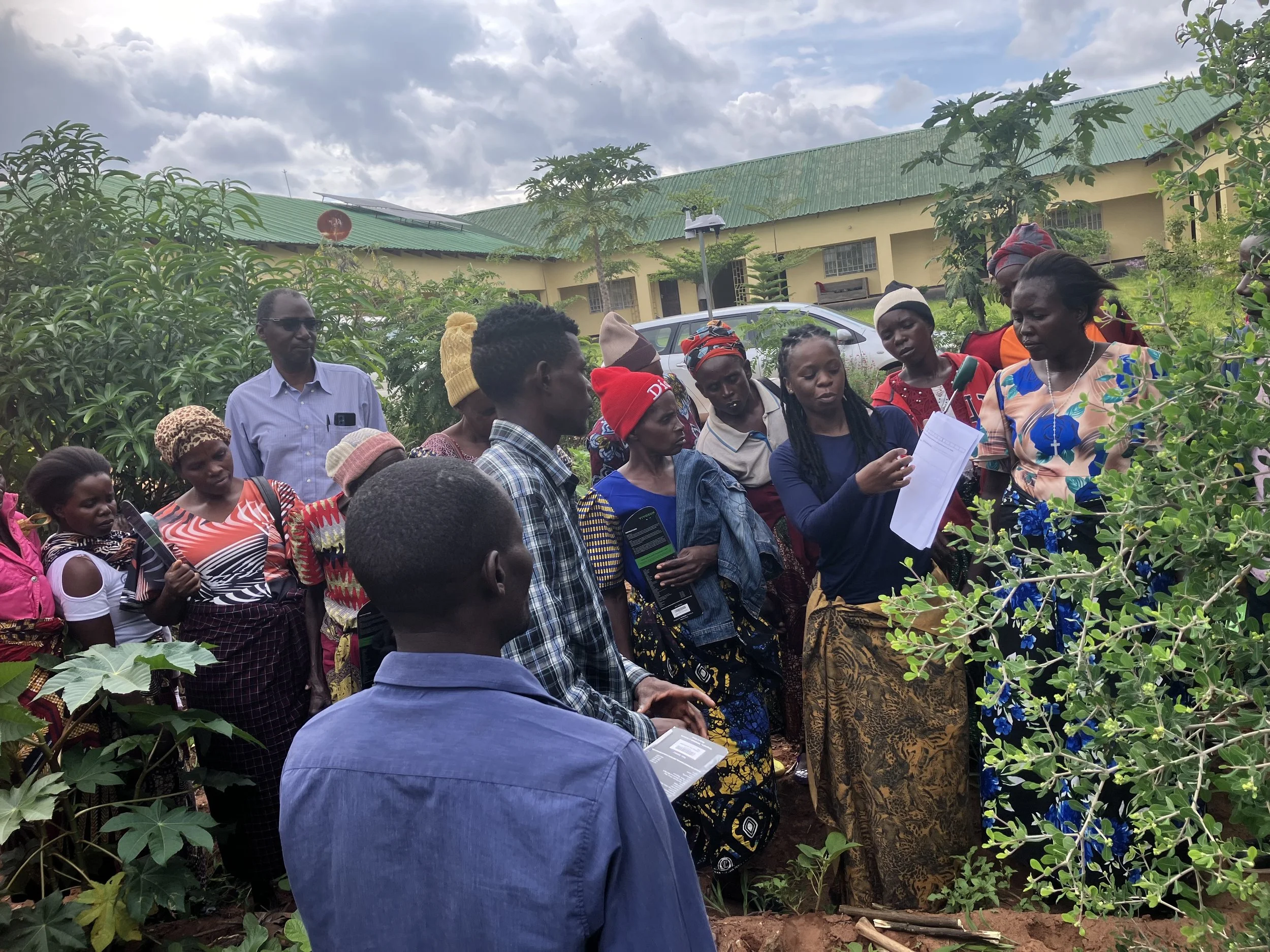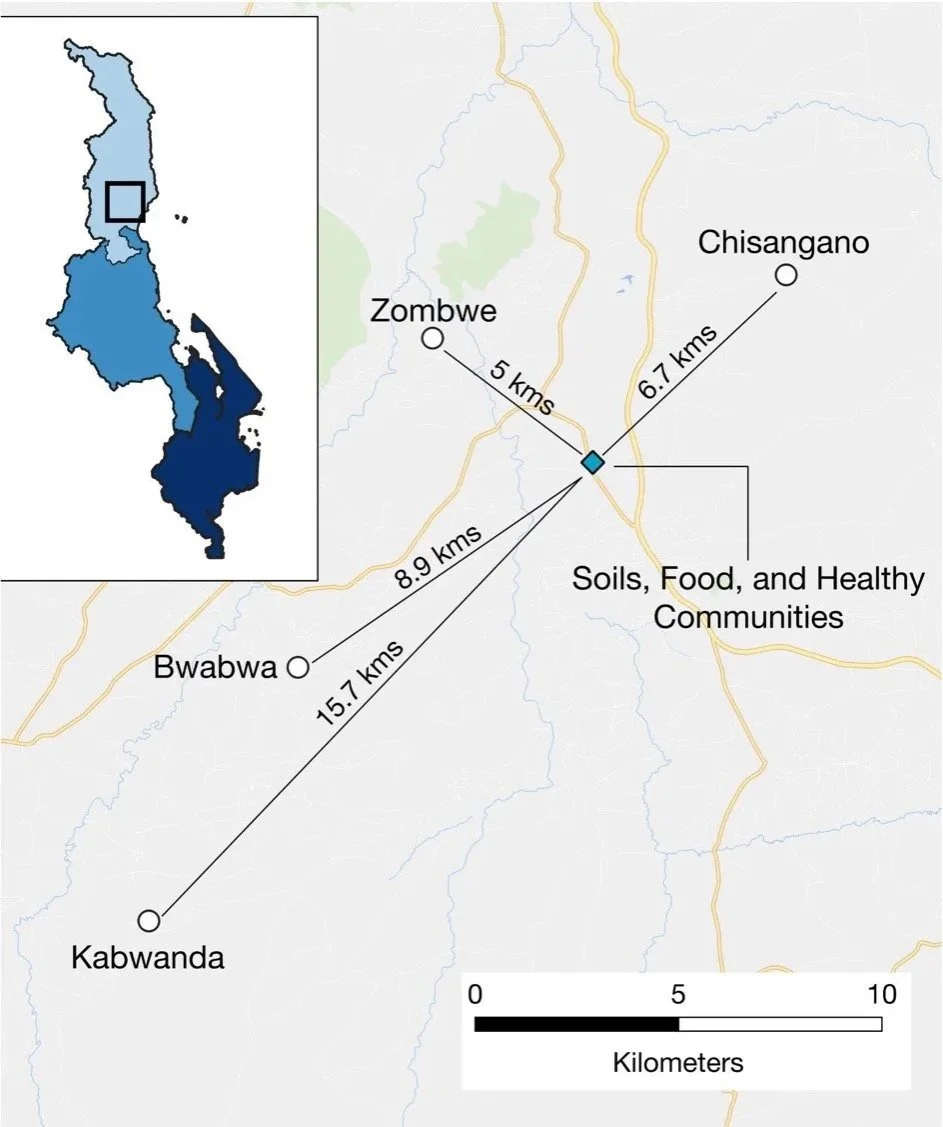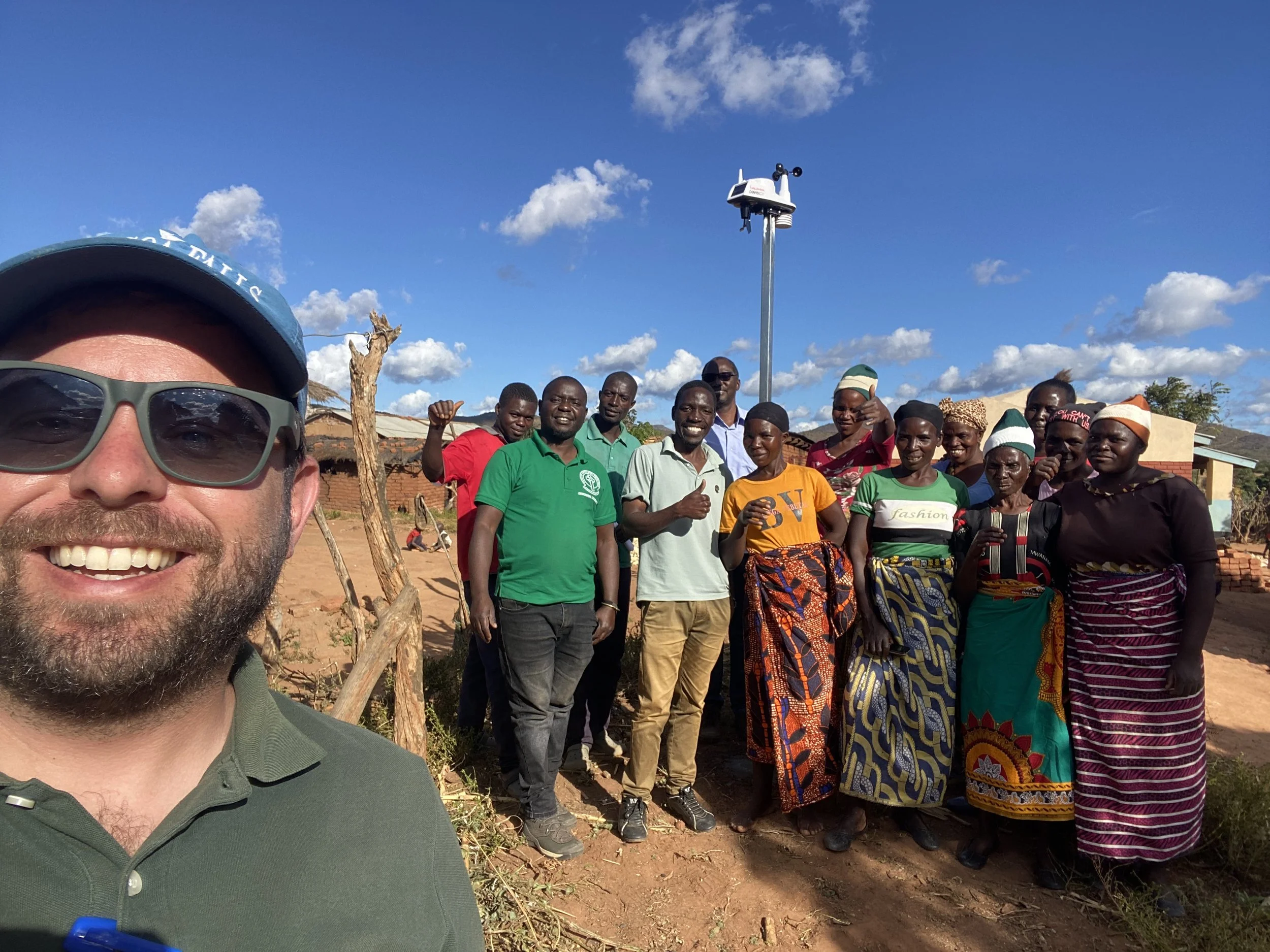Agroecology Gender-Transformative Living Labs For Climate Resilience (AGILE4Climate)
Overall objective:
To strengthen climate resilience in Malawian rural communities to improve food security and environmental sustainability through agroecological gender-transformative transitions, using participatory research in living labs.
Agnes Luhanga, PhD student, explaining the data collection methods with soil moisture meter, with Anita Chitaya (right), Laifolo Dakishoni (far left) and participating farmers. Jan. 2025, Photo credit: R. Bezner Kerr
research question 1:
Do agroecological practices increase crop resilience to climate risks such as dry spells, heat stress and pest/disease damage?
Research Methods: Four Living labs, with 25 farming households per lab = 100 farmers. Each set aside 1 experimental plot and 1 control plot (10 x 10 m). Farmers and researchers measure crop response to climate stress including drought, heat and pest/disease pressure
Map of the 4 living lab locations
• Experimental Design:
Plot 1: agroecological practices (compost, legume intercrops Pigeonpea + groundnut/bambara nut rotated with local open-pollinated maize + pumpkin
Plot 2: Maize mono cropped with fertilizer applied.
Jordan Blekking and SFHC team installing weather station, June 2025.
research question 2:
Can integrating indigenous local knowledge, climate and weather forecast data and agroecology enhance farmers’ social learning and decision-making and facilitate climate adaptation?
Research team
Soils, Food and Healthy Communities (SFHC) ; Cornell University (USA); Lilongwe University of Agriculture & Natural Resources (LUANAR); Mzuzu University; Ministry of Agriculture (Malawi); Western University (Canada); Australian National University (ANU); Illinois State University (USA); St. Lawrence University (USA); University of Denver (USA).



